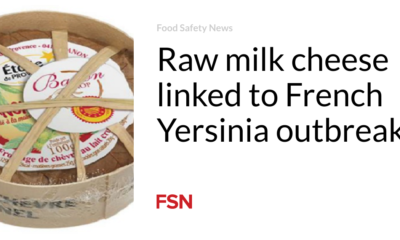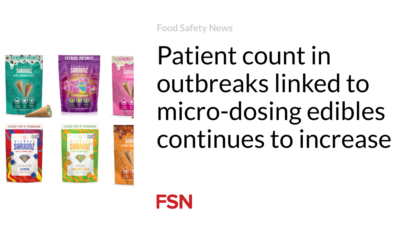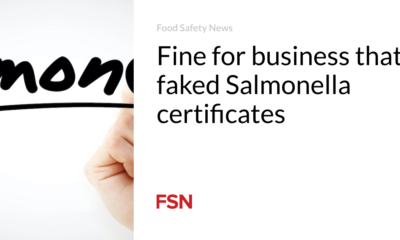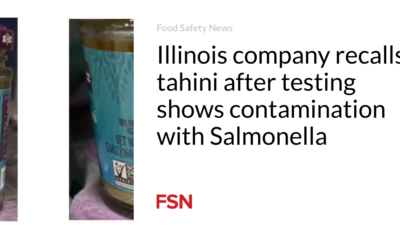Food
Greece is struggling with the Salmonella outbreak; Listeria increase
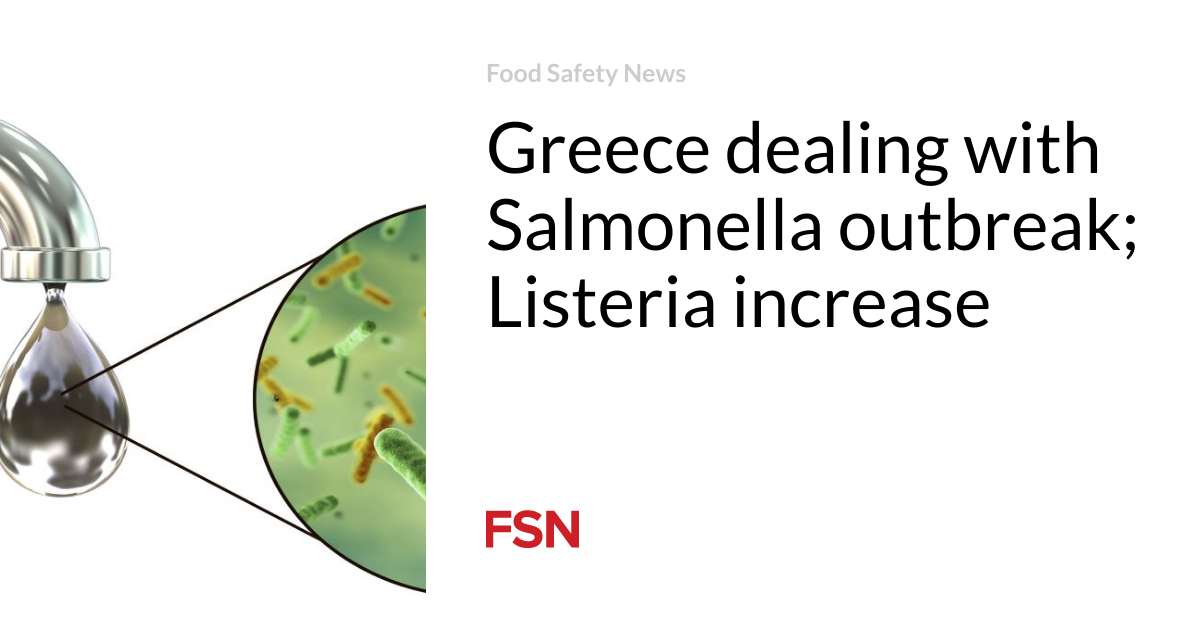
At least 100 people have recently fallen ill in Greece, believed to be a source of contaminated water.
The Greek National Public Health Organization (EODY) said that at the end of May, an increased incidence of gastroenteritis cases was observed in residents of the areas of Rizomylos and Stefanovikiou, Magnesia.
A total of 100 cases were reported, across all ages and both sexes, with symptom onset dates between May 24 and June 2. Nine children were hospitalized, as well as an elderly person with underlying conditions.
Samples were taken from the water supply network and laboratory analysis revealed Salmonella, in addition to microbial indicators of fecal contamination.
Six stool samples from hospitalized children were positive for Salmonella, as was another sample from another patient.
Officials issued a notice to the public advising them not to drink mains water or use it for washing food and in food preparation. If it is to be used, it should be cooked at 100 degrees C (212 degrees F) for a minimum of three minutes. Remediation of the water network began and daily checks were carried out until water quality was restored.
Previous incidents
It is not the first waterborne outbreak in Greece. According to EODY surveillance data, 35 outbreaks with 6,128 cases and 218 hospitalizations were identified between 2004 and 2023. Seven outbreaks with more than 200 cases were recorded and the largest affected 1,640 people.
In August 2022, the Greek National Public Health Organization was notified of an outbreak of gastroenteritis in southern Greece. At least 33 people became ill and seven were hospitalized. Tap water consumption was the only significant risk factor for disease. Salmonella Bovismorbificans was isolated from eight fecal and one tap water samples. Research has not shown how the water could have been contaminated.
A study published in the International Journal of Environmental Research and Public HealthResearch showed that residual chlorine levels before and during the outbreak were lower than the minimum required by Greek law. This could indicate deficiencies in water treatment practices, scientists said.
Another study said so delays in reporting and research methods demonstrate the need to strengthen waterborne outbreak surveillance and response methods, and standardize operational procedures.
Listeria warning
EODY has also warned of an increase in Listeria infections in 2023 and 2024.
Surveillance of listeriosis through the Mandatory Disease Reporting System began in Greece in 2004. Between 2004 and 2023, 266 cases and 59 deaths were reported.
In 2023, 31 cases were registered. The median age of the patients was 67, with a range of less than 1 to 92 years, and 18 were men. From January to mid-April 2024, 12 infections were reported.
To protect public health, EODY said it is taking a series of measures, including advising health units across the country on procedures to follow when cases are detected. The Hellenic Food Authority (EFET), the Ministry of Rural Development and Food, and the National Reference Laboratory for Listeria monocytogenes in food have been notified.
Patient samples have been sent to a laboratory working with ECDC for whole-genome sequencing, with the aim of identifying possible outbreaks and any links to global incidents. A working group has also been set up to share data in the event of an outbreak and discuss measures to respond to the problem.
(To sign up for a free subscription to Food Safety News, click here.)



